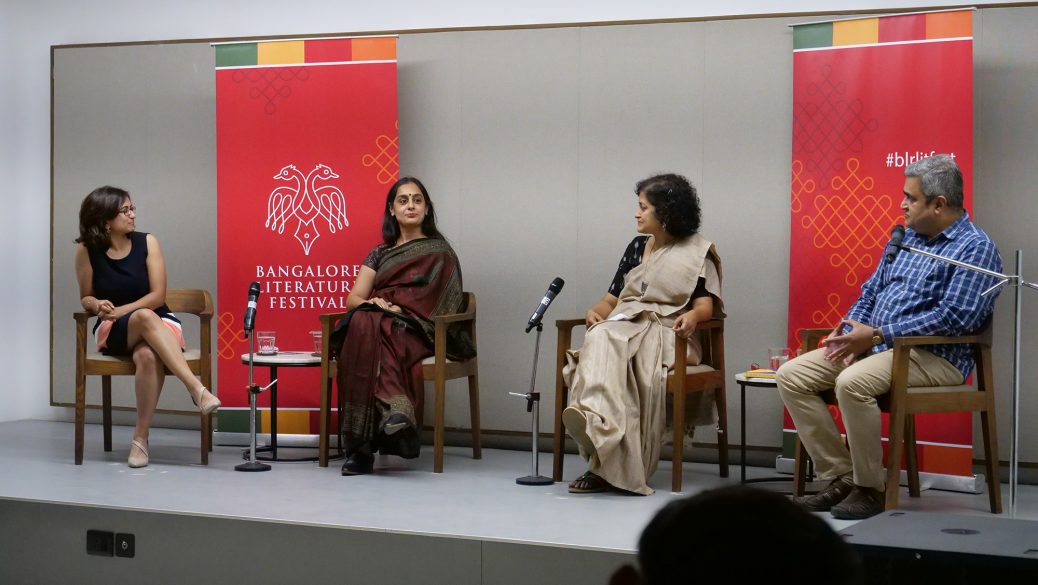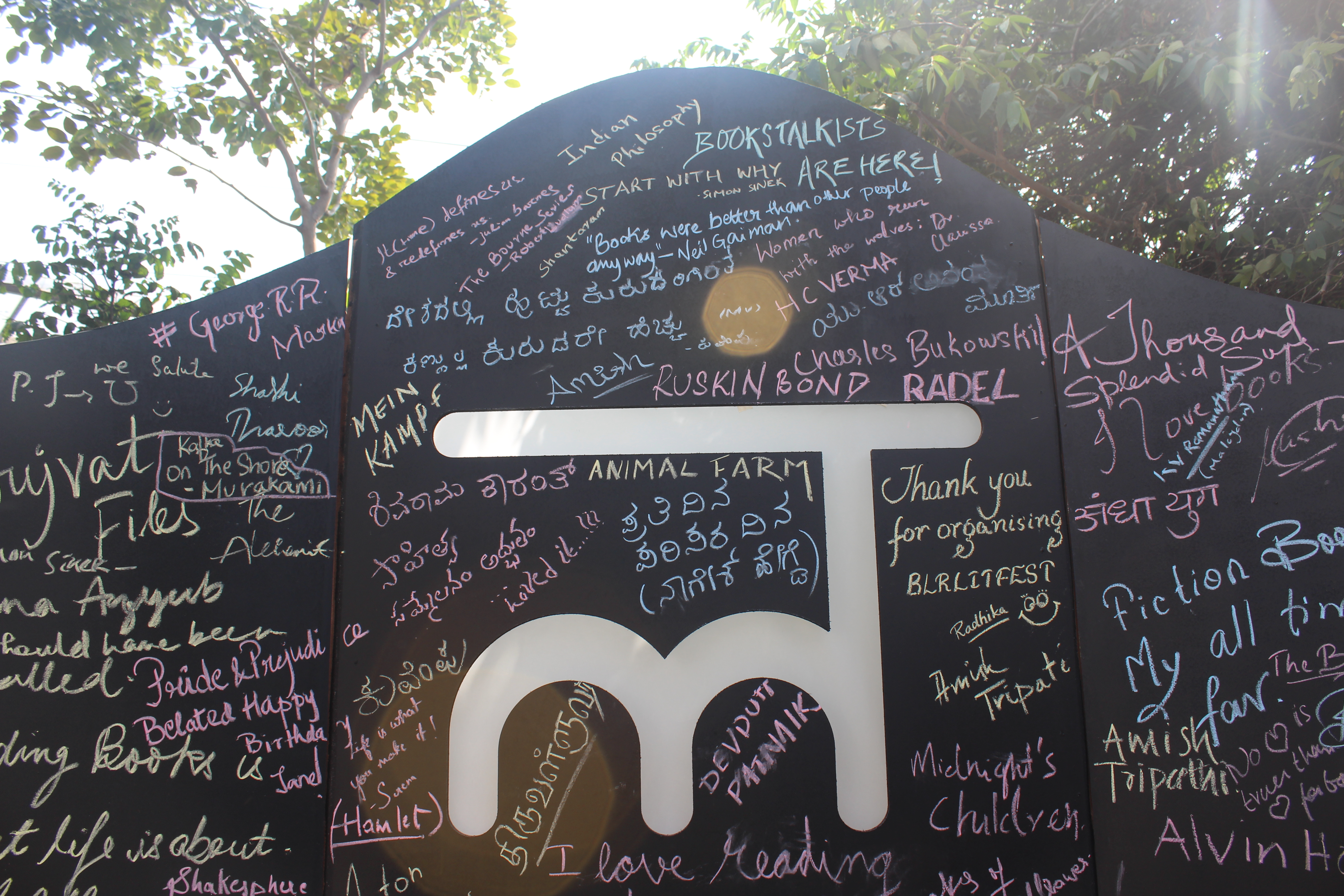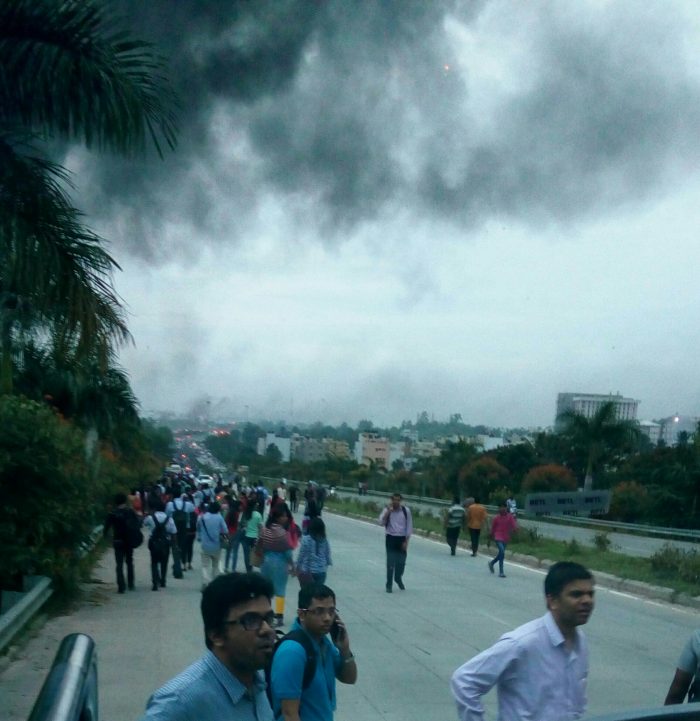The moderator for the session Crime and the city was Krishna Udayasankar who is known for her amazing works like The Aryavata Chronicles, Immortal, and Objects of affection. The panel included Rachna Singh, V. Sanjay Kumar, and Zach O’Yeah. Rachna Singh is a humour writer who was born and brought up in Allahabad. Her debut “Dating, Diapers and Denial” has earned good reviews from readers across the globe. V. Sanjay Kumar, is a Bangalore-based writer. His works include The Third Squad, Virgin Gingelly, and Artist, Undone. Zach O’Yeah is a crime novelist who has published 18 books of which many are bestsellers. He is also a literary critic, playwright, performer, director, and musician.
The session kick-started with Krishna Udayasankar asking “Why the city or place plays a major role in crime writing?” Sanjay Kumar has brilliantly answered it by sharing his first memory of the crime and his experiences related to white-collared crimes in Mumbai. Zach O’Yeah felt that sometimes it’s difficult to translate crime writings from one language to another language as the nature of crime differs from one place to another place and he strongly stated that the city plays a major role in shaping crimes and criminals. He said that the cultural aspects of India set it apart from other countries. He believes that every writing reflects a particular culture and because of those cultural differences, there cannot be a generic city. He further added that because of all these factors, ‘where the plot is set’ is as important as the plot itself in a crime novel. Following up on the conversation, Rachna Singh shared her views about the same by sharing her thoughts on cities like Allahabad and Mumbai.
According to Sanjay Kumar, the most important part of crime writing is not just describing the city but it’s more about the set of characters the city creates. He shared some interesting things about a few characters from his previous books to give some insights into how the city plays a crucial role in building the mindsets of individuals. Making the conversation more interesting, Zach O’Yeah shared about his travel writing job, mentioning how he enjoys exploring different cities and writing about them. He especially talked about how amused he was while travelling in Bangalore and getting to know a wide range of fascinating things about it. He made a valuable point by saying “When it comes to novels, it’s different. It’s not like ‘my city’ I am talking about in my writings but I am talking about a city from the point of view of the person in the book. It is what makes things more challenging as a fiction writer; the need to write from a general perspective. Also, what defines a city is how comfortable it is for other people, the ones who are not as privileged as you are. We should think with intellectual empathy.”
The session had its fair share of laughter when Krishna Udayasankar asked everyone to describe different cities in a single word. All the panel members displayed a great sense of humor and came up with the funniest responses.
The next part of the session saw Sanjay Kumar reading an excerpt from his latest book and expressing his thoughts about it. Later, Zach O’Yeah pointed out that there are neither completely black characters nor completely white characters in his books; it’s always a mixture of them, all characters are grey.
The session ended with panel members discussing contemporary crimes and the way they affect the style of crime writing.
About the Author: Sai Pradeep is an aspiring writer from Visakhapatnam who recently published his first collection of poetry, All the lights within us. He is working as a content writer in Bangalore. He currently writes for TheSeer.













